Rig is drilling in our waters, Beijing says
Updated: 2014-05-08 04:25
By ZHAO SHENGNAN (China Daily)
|
||||||||
A giant rig owned by China's top offshore oil producer is operating within the country's territorial waters, Beijing said on Wednesday.
China stated its position as it reaffirmed its resolve to protect territorial sovereignty amid continued maritime challenges from Vietnam.
Specialists said tensions may escalate, with China within its legal rights to operate the rig, and Vietnam feeling emboldened by Washington's military pivot and US President Barack Obama's recent Asian visit.
Existing communication channels should be used to avoid possible clashes, the specialists said.
Beijing and Hanoi exchanged sharp rhetoric after the Maritime Safety Administration of China posted a navigational warning on its website on Saturday advising that the deep-sea rig Hai Yang Shi You 981 would be drilling near the Xisha Islands from May 4 to Aug 15.
The Associated Press cited a Vietnamese official as claiming that Vietnamese ships collided with Chinese vessels near the rig in an attempt to prevent drilling.
State Councilor Yang Jiechi cautioned Vietnam not to disturb the activities of Chinese companies near the islands, saying that operations within the mandate of China's sovereignty should not be subject to interference.
The Xisha Islands are part of China's inherent territory and there is no dispute about this, Yang told Vietnamese Deputy Prime Minister and Foreign Minister Pham Binh Minh during a phone call on Tuesday.
The islands have been Chinese territory for centuries and there is a monument declaring China's sovereignty, along with a communications station run by a Chinese company, on Zhongjian Island, the island closest to the rig.
Hanoi claimed the rig was operating in its exclusive economic zone and on its continental shelf.
Wu Shicun, president of the National Institute for the South China Sea, said Hanoi's accusations were groundless because the two governments had never reached a formal agreement on exclusive economic zones. It was also not necessary for China to discuss its territorial sovereignty with any other party, he said.
Wu said Vietnam's "harassment" had obstructed some of China's earlier exploration and development plans in the South China Sea. "However, this time China may not step back," he added.
"This incident happened near the Xisha Islands, which are Chinese territory, and China is not what it used to be two decades ago.
"Vietnam may continue its disruption, but China also has plans to respond. However, both sides know the best way out is by talking."
The $1 billion rig, with a deck as large as a soccer field, is owned by China National Offshore Oil Corp and began operations in 2012. The state-of-the-art rig is the first deep-sea rig designed by China, according to Xinhua News Agency.
Xu Liping, a Southeast Asian studies researcher at the Chinese Academy of Social Sciences, said Vietnam has been strengthening its military hardware through cooperation with the United States and Japan.
Obama's strategic "pivot" toward the Asia-Pacific region, and especially his just-concluded Asian tour, had emboldened countries like Vietnam and the Philippines to challenge China's sovereignty, Xu said.
A new defense pact between the US and the Philippines clearly showed Washington's biased stance over territorial issues and its intention to contain China, Wu said.
In Washington on Tuesday, a State Department spokeswoman described China's rig operations as "provocative and unhelpful to the maintenance of peace and stability in the region".
The Chinese Foreign Ministry said on Wednesday that the drilling has nothing to do with the US.
Washington has no right to make irresponsible remarks about China's sovereign rights, spokeswoman Hua Chunying said at a daily news briefing.

 Chinese enrollment for US MBAs is rising
Chinese enrollment for US MBAs is rising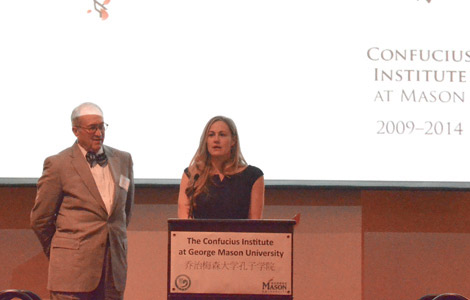
 Confucius Institute marks 5th year at George Mason
Confucius Institute marks 5th year at George Mason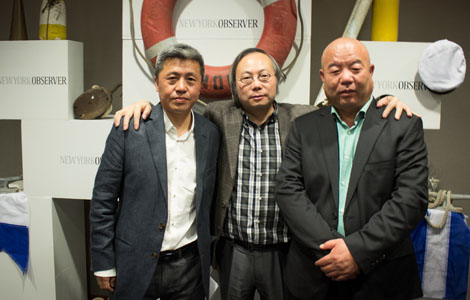
 Chinese artists attend NY philanthropists' event
Chinese artists attend NY philanthropists' event
 Chinese in 'orbit' over lollipops
Chinese in 'orbit' over lollipops
 Red panda gets a name, at last
Red panda gets a name, at last
 Forum trends: Made in China - cheap and inferior?
Forum trends: Made in China - cheap and inferior?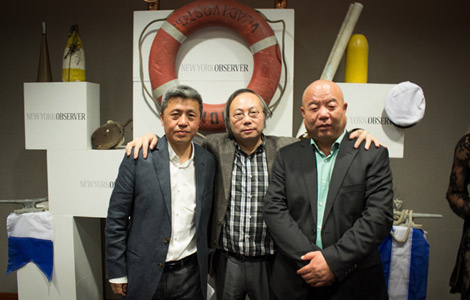
 Chinese artists are part of NY philanthropists' event
Chinese artists are part of NY philanthropists' event
 When a man loves an extremely tall woman
When a man loves an extremely tall woman
Most Viewed
Editor's Picks

|

|
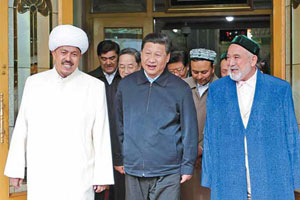
|
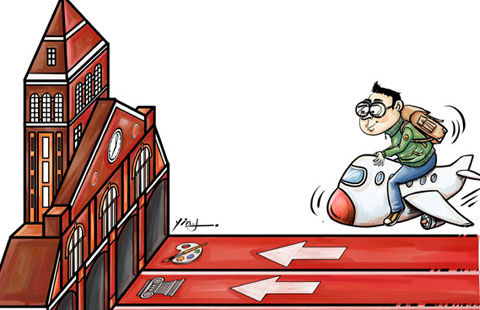
|

|

|
Today's Top News
Top US school's offer puts youth into spotlight
Facebook gains by aiding nation's exporters: VP
China's mobile gaming market to top US and be No 1
Cheetah Mobile IPO on NYSE raises $168m
Cipher this: Chinese novel explores cryptography's labyrinth
Confucius Institute marks its fifth year at George Mason Univ
Thailand's new PM seen capable of compromises
China urges Japan to maintain regional peace
US Weekly

|

|






